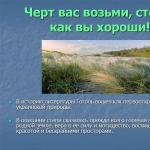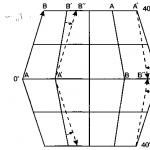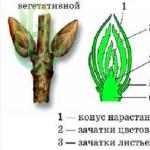Presentation for the lesson
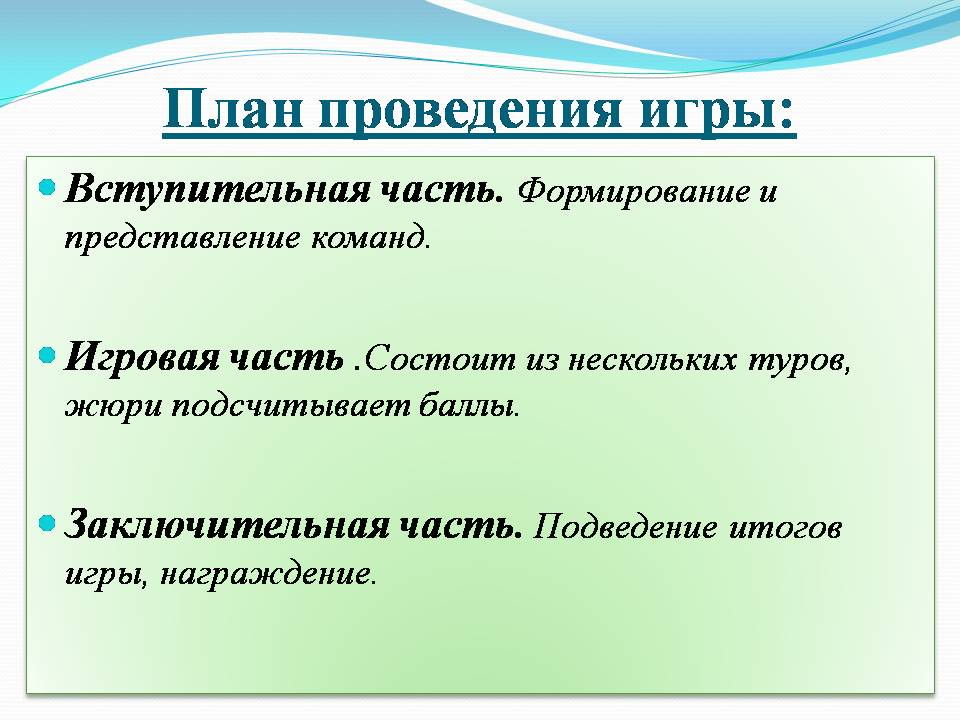
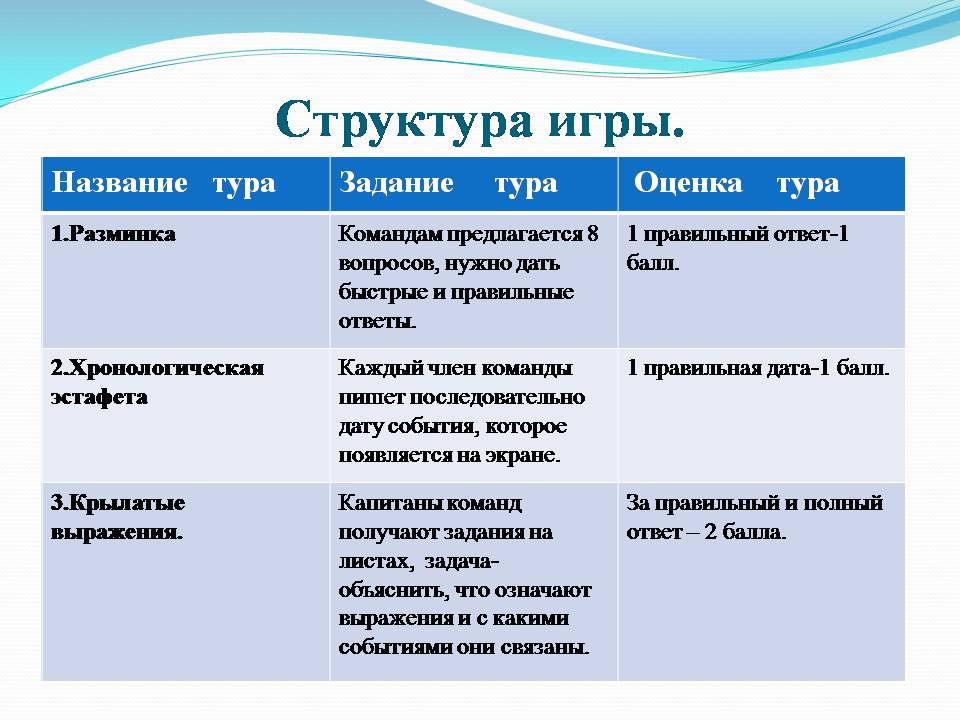
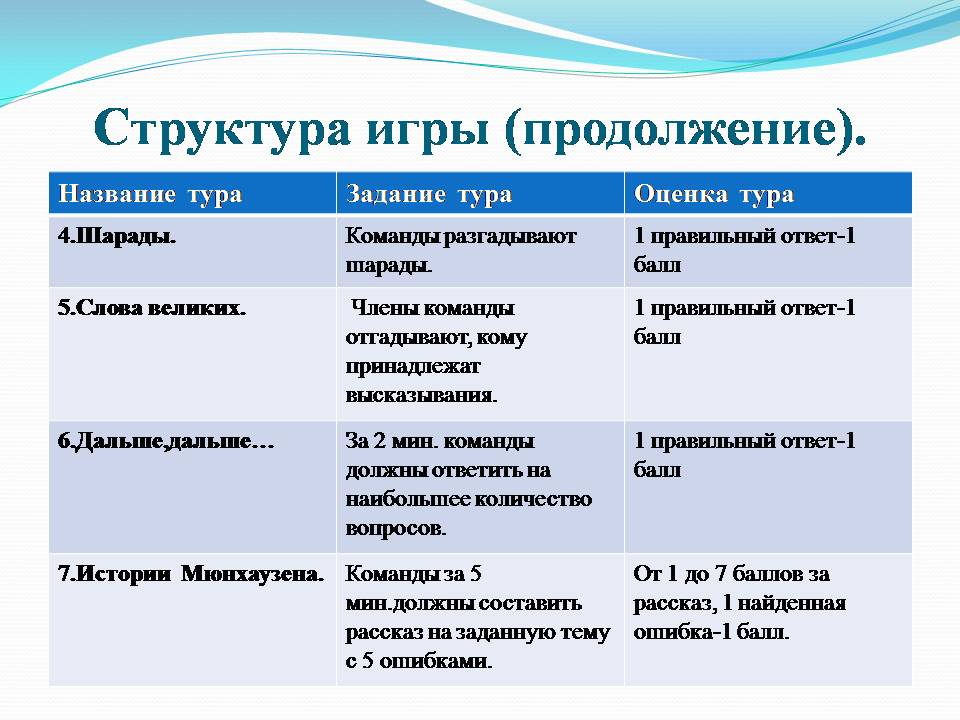
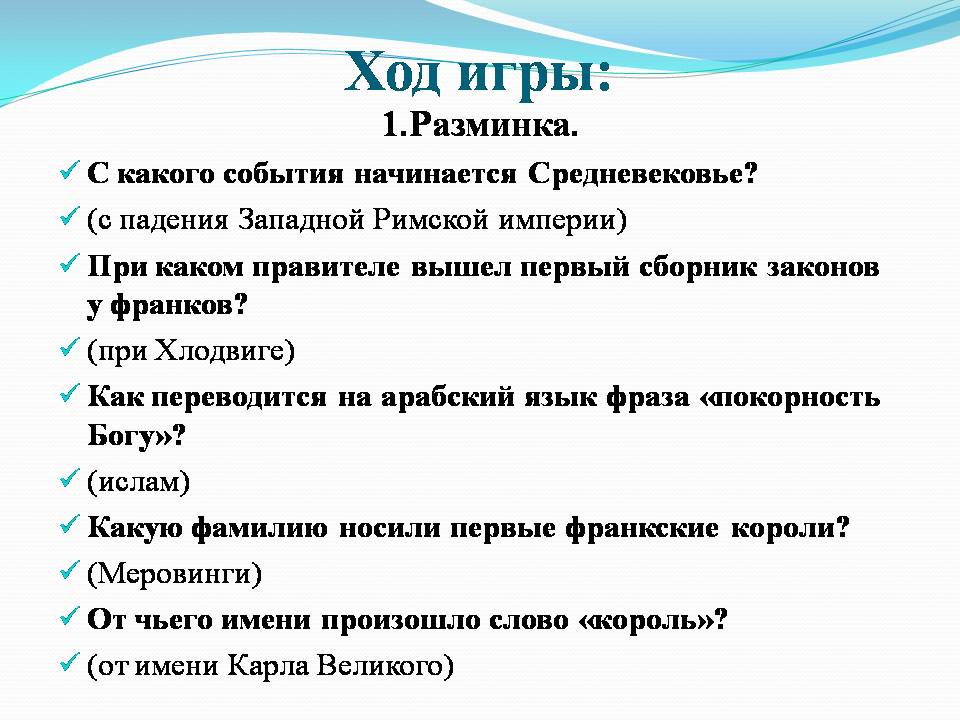
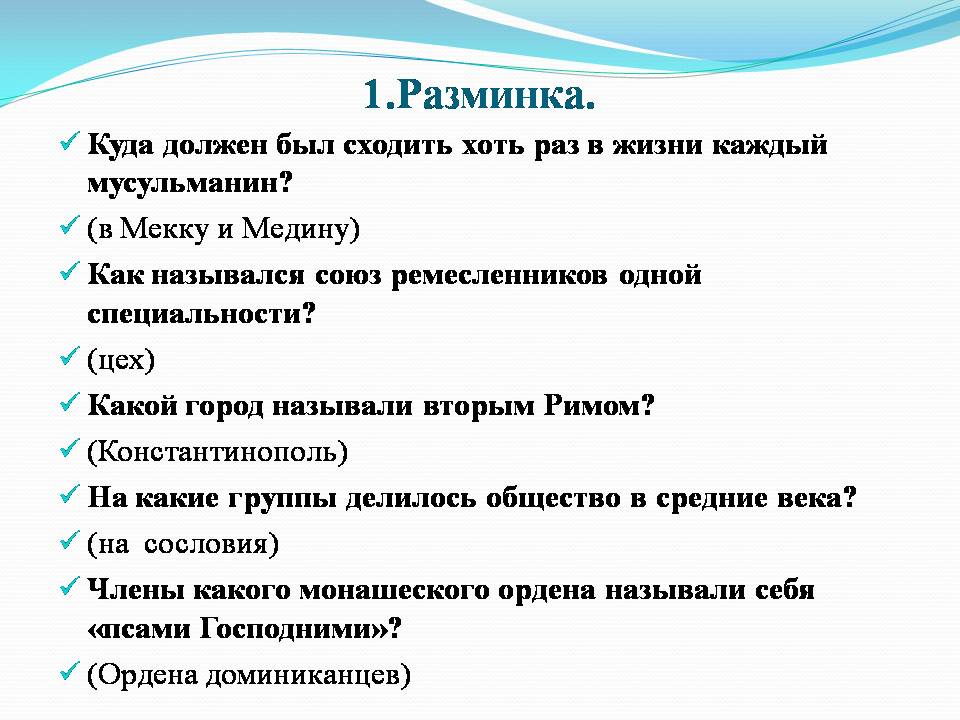
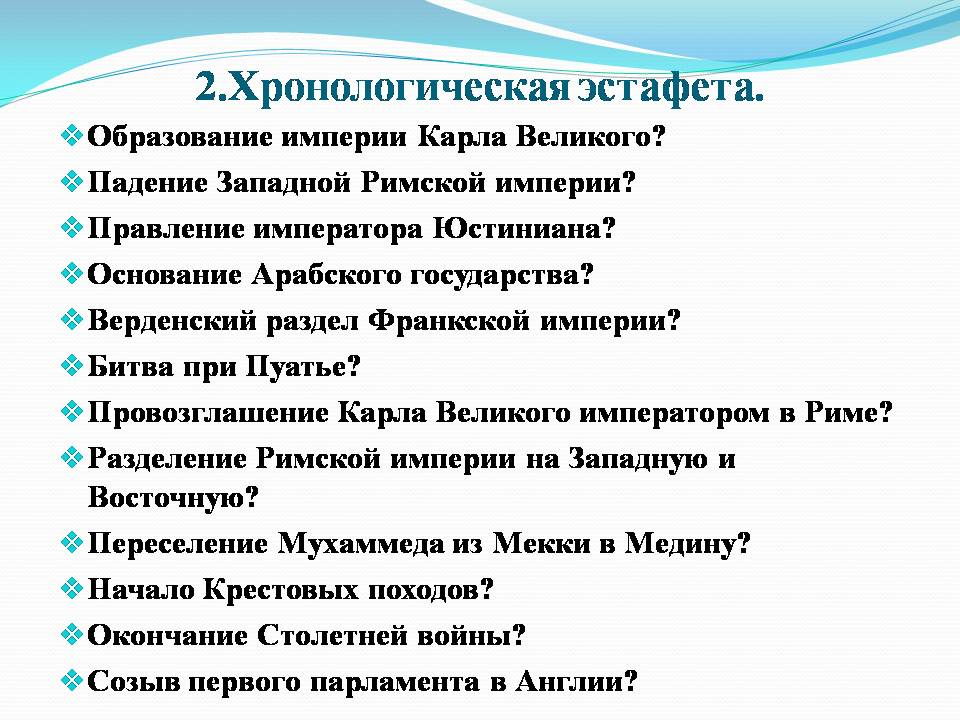
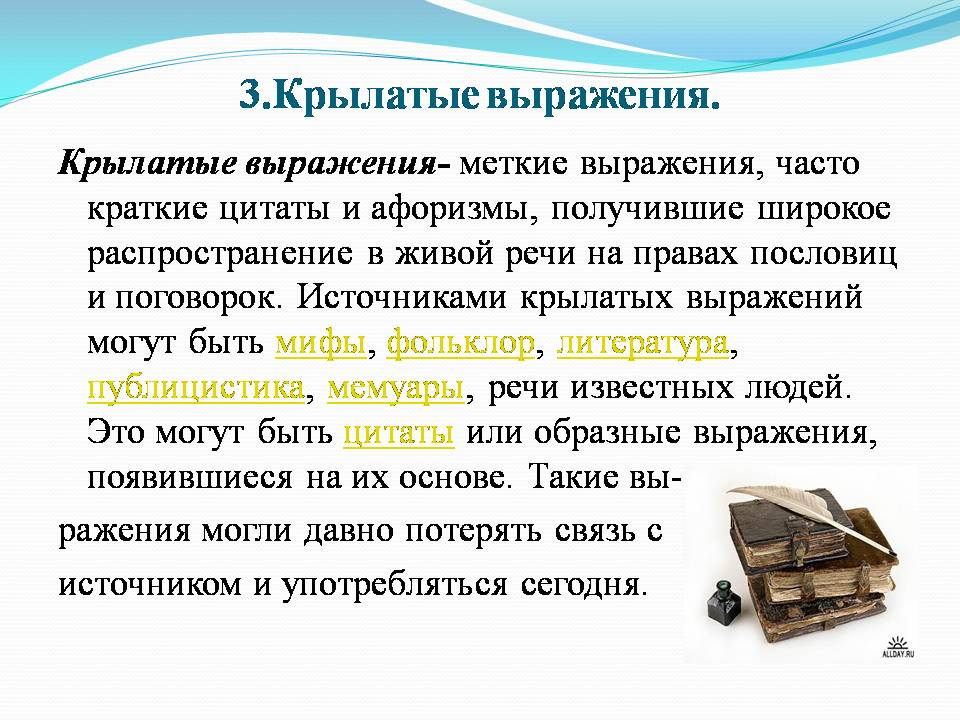
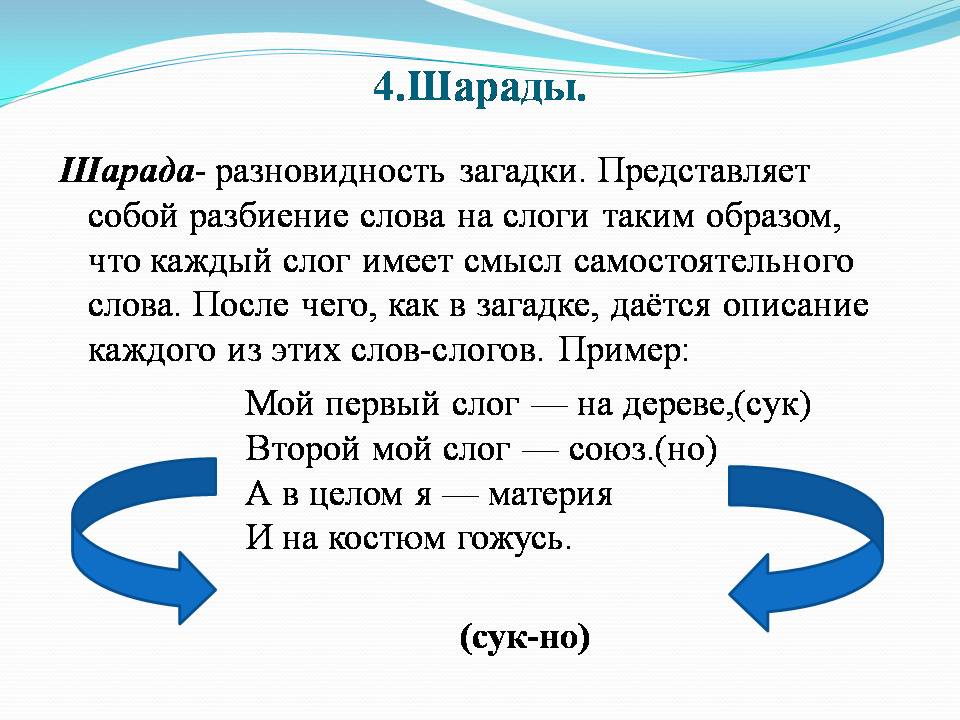
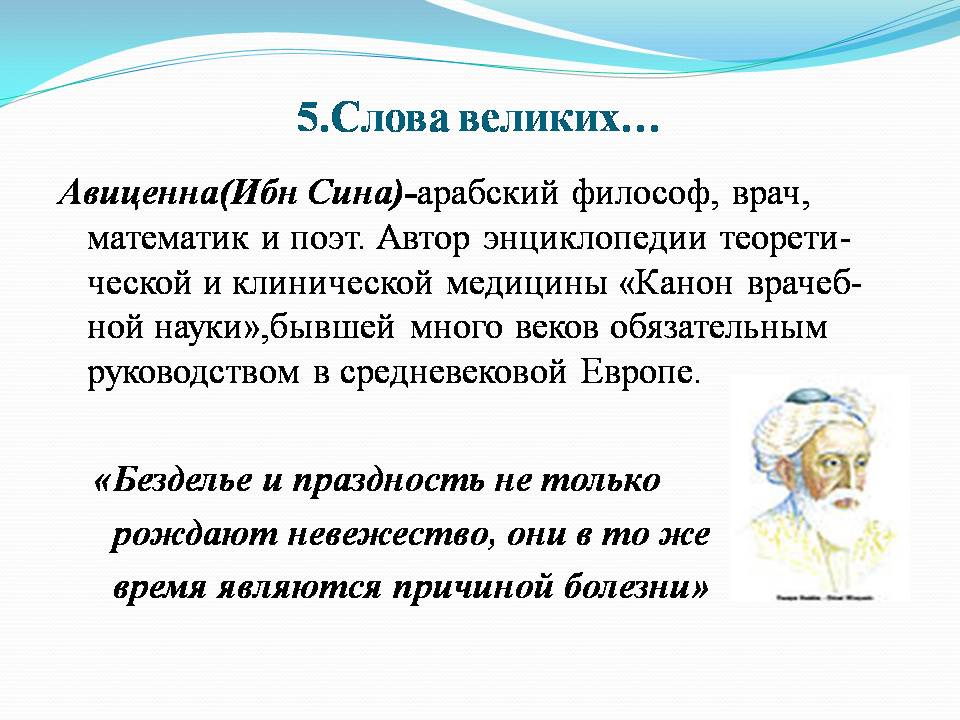
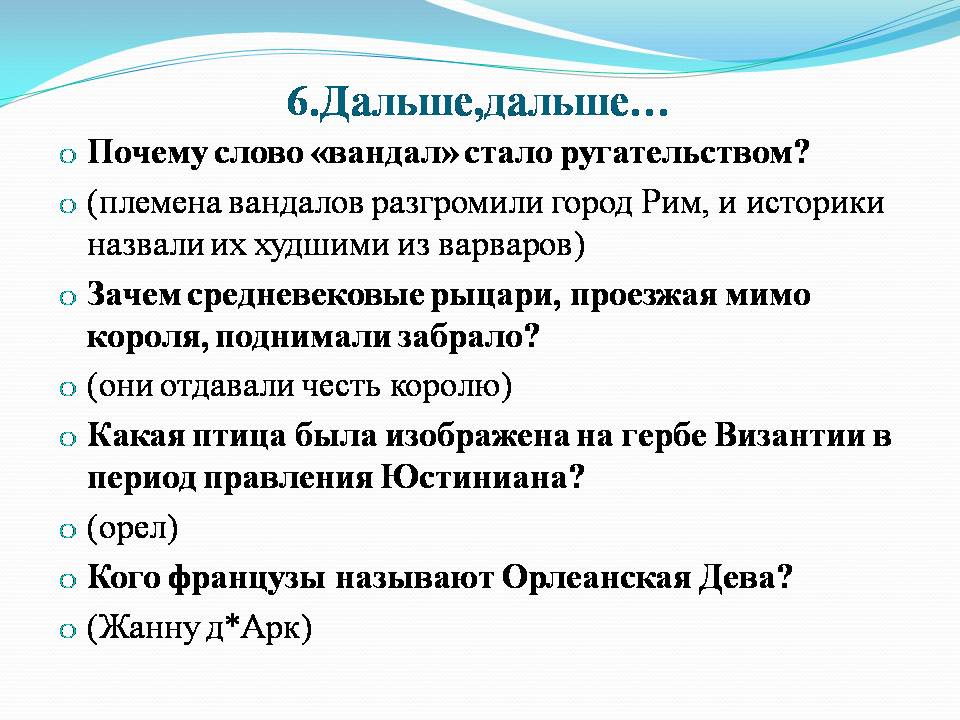
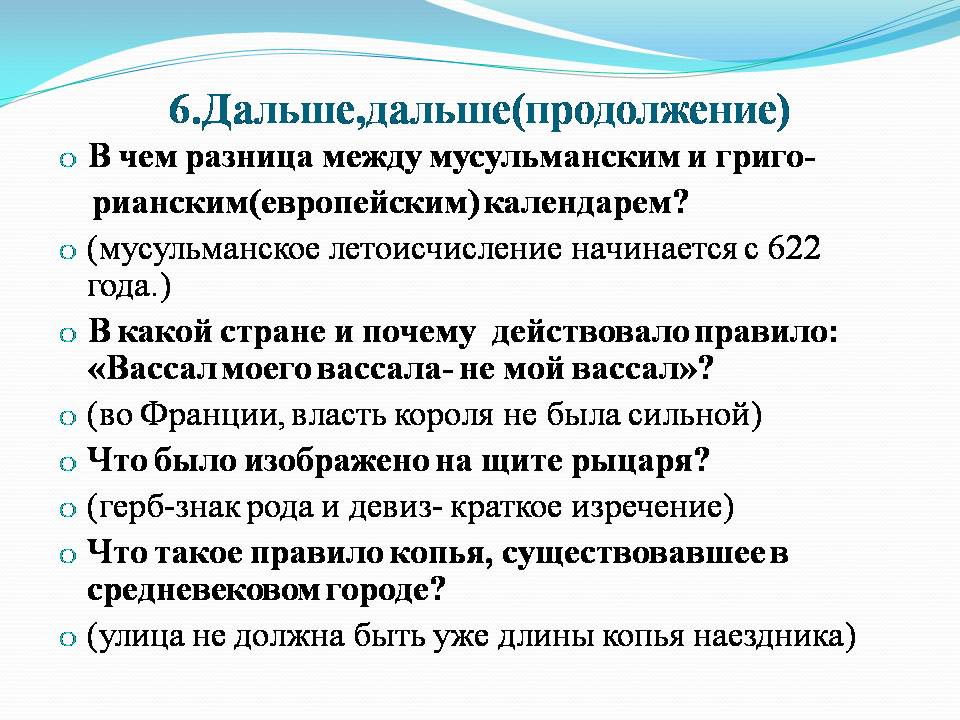
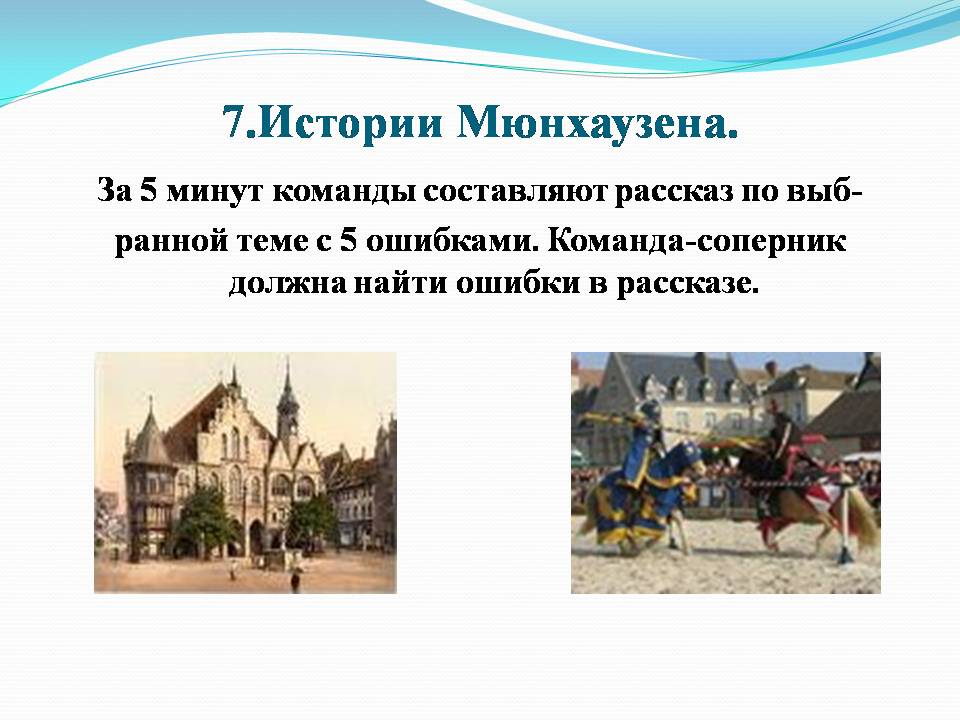
![]() Back forward
Back forward
Attention! The slide preview is for informational purposes only and may not represent the full extent of the presentation. If you are interested in this work, please download the full version.
Lesson Objectives:
- to test students' knowledge of the sections covered in an unconventional form;
- generalize the acquired knowledge of students;
- contribute to the cohesion of the class team;
- develop the ability of children to work in groups;
- to interest students in the study of additional literature;
Lesson form: cognitive historical game using a multimedia presentation.
Game plan:
Introductory part. Formation and presentation of teams.
Game part. It consists of several rounds, the jury calculates the points.
Final part. Summing up the results of the game, rewarding.
Game structure
| Tour name | Tour assignment | Tour rating |
| 1. Warm up | Teams are offered 8 questions, you need to give quick and correct answers. | 1 correct answer - 1 point. |
| 2. Chronological relay | Each team member writes in sequence the date of the event that appears on the screen. | 1 correct answer - 1 point. |
| 3. Popular expressions | Team captains receive tasks on sheets, the task is to explain what the expressions mean and what events are associated with. | For a correct and complete answer - 2 points. |
| 4. Charades | Teams solve charades. | 1 correct answer - 1 point. |
| 5. Words of the great | Team members guess who the statements belong to. | 1 correct answer - 1 point. |
| 6. Further, further: | For 2 min. Teams must answer as many questions as possible. | 1 correct answer - 1 point. |
| 7. Stories of Munchausen | Teams in 5 min. must write a story on a given topic with 5 mistakes. | From 1 to 7 points for the story, 1 error found -1 point. |
Game progress
After the formation of teams, the selection of captains, the presentation of teams (team name, motto) the structure of the game is displayed on the projector screen to get to know her guys. Questions appear on the screen in rounds 1,2,6, the teacher comments on them and the guys respond quickly by raising their hands. The jury (from high school students or teachers) monitors the speed of the children's reactions and counts the correct answers.
In 3,4,5,7 rounds, the team captains draw out cards with tasks for the team. Tips for the guys containing information about the essence of the task are displayed on the screen. The jury calculates points during the game and writes down the results in a comparative table on the board. At the end of the lesson, the results are summed up and the winners are awarded. You can make an exhibition of additional literature on the "History of the Middle Ages", inviting the children to read their favorite stories from the studied course.
Examples of tasks of the 3rd round "Winged expressions" can be:
- Explain the winged expressions and remember in connection with what events they appeared:
- "City air makes a person free" (in the Middle Ages, peasants who fled to the city from the feudal lord and lived there for a year and one day received freedom)
- "What fell from the cart is gone" (In the Middle Ages, the land and everything that was on it belonged to the feudal lord. If the goods of the merchant fell from the cart, then it became the property of the owner of the land).
Examples of tasks of the 4th round of "Charades" can be:
- The first part of the word is the sun god in Egypt;
- The second is a musical greeting;
- The third is the initial letter of the alphabet;
- The whole is the city council building in the Middle Ages. (Town Hall).
- The first syllable is the sound of laughter;
- The second is the upper part of the women's dress;
- The whole is the ruler in the East. (Khalif).
Examples of tasks of the 5th round "Words of the Great" can be:
- "Saber and religion are inseparable" (Mehmed II)
- "Come out against the infidels! Hurry into battle! He who is sad and poor here will become joyful and rich" (Pope Urban II).
Examples of tasks of the 7th round of the "History of Munchausen" can be:
Topics for stories:
- "Knight Tournament"
- "In the medieval city"
- "Storm of the Crusaders of Jerusalem"
Bibliography.
1. Agibalova E. V., Donskoy G. M. History of the Middle Ages: textbook. for 6th grade. M., Enlightenment, 2006.
2. Brandt M. Yu. History of the Middle Ages. Textbook for grade 6. M. : Bustard, 2005.
3. Dorozhkina N. I. A modern history lesson: the use of multimedia presentations: grades 5-11. -M. :WAKO, 2009.
4. Games and entertaining tasks in history / Ed. - comp. M. A. Subbotina, I. B. Goryacheva, L. M. Dobrolyubova, etc. -M. : Bustard, 2003.
5. Lebedeva I. M. Organization and holding of historical Olympiads in grades 6-9. - M.: Education, 2003.

